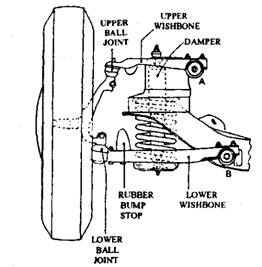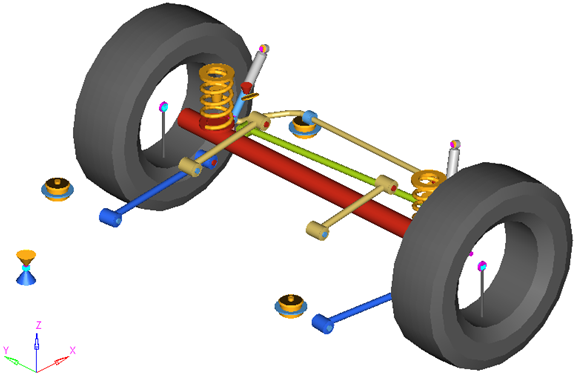[Image comparing IFS and solid axle suspension systems]
In the realm of automotive engineering, suspension systems play a crucial role in ensuring a smooth, comfortable, and safe ride. Two prominent suspension designs, Independent Front Suspension (IFS) and Solid Axle, have dominated the automotive landscape for decades. Each system offers distinct advantages and disadvantages, catering to specific vehicle requirements and off-road capabilities.
Independent Front Suspension (IFS): A Symphony of Independent Movement

IFS, as the name suggests, allows each front wheel to move independently of the other. This independence is achieved through a complex network of control arms, ball joints, and shock absorbers. As one wheel encounters an obstacle or uneven terrain, the other wheel remains unaffected, providing a more comfortable and controlled ride.
Advantages of IFS:
- Superior handling and road feel, especially on paved surfaces
- Enhanced comfort and stability over rough terrain
- Reduced wear and tear on tires and suspension components
- Improved fuel economy due to reduced friction and drag
Disadvantages of IFS:
- Increased complexity and cost compared to solid axle systems
- Potential for reduced durability in harsh off-road conditions
- Limited ground clearance and wheel travel
Solid Axle: A Robust and Durable Backbone

In contrast to IFS, a solid axle suspension system utilizes a rigid beam that connects both front wheels. This design provides a robust and durable foundation, particularly for vehicles intended for off-road use. The solid axle allows for greater wheel travel and ground clearance, enabling vehicles to navigate challenging terrain with ease.
Advantages of Solid Axle:
- Exceptional durability and strength, ideal for off-road applications
- Greater wheel travel and ground clearance for tackling obstacles
- Simpler construction and lower maintenance costs compared to IFS
Disadvantages of Solid Axle:
- Rougher ride and reduced handling compared to IFS
- Increased body roll and potential for loss of control on paved surfaces
- Heavier weight and potential impact on fuel economy
Choosing the Right Suspension System: A Matter of Terrain and Purpose
The selection between IFS and solid axle suspension systems hinges on the vehicle’s intended use and the terrain it will encounter:
IFS: Suitable for vehicles primarily used on paved roads and highways, prioritizing comfort, handling, and fuel economy.
Solid Axle: Ideal for vehicles frequently driven off-road, offering superior durability, ground clearance, and wheel travel for tackling challenging terrain.
Conclusion: Embracing the Versatility of Automotive Engineering
IFS and solid axle suspension systems represent two distinct approaches to vehicle dynamics, each offering unique advantages and catering to specific needs. By understanding their strengths and limitations, engineers, manufacturers, and consumers can make informed decisions that optimize vehicle performance, comfort, and off-road capabilities. Whether navigating city streets or traversing rugged terrain, IFS and solid axle suspensions play a crucial role in ensuring a safe, comfortable, and enjoyable driving experience.